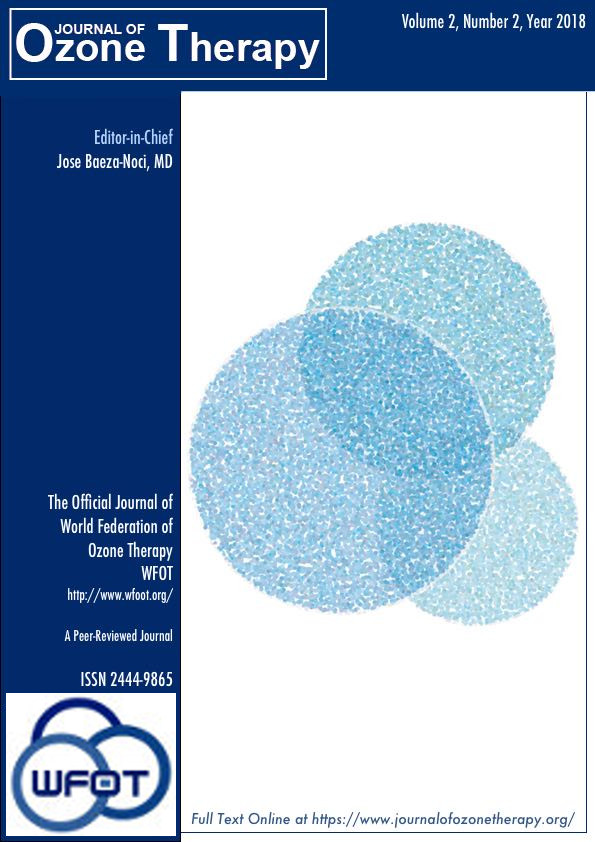Chronic Kidney Disease - CKD [abstract]
DOI:
https://doi.org/10.7203/jo3t.2.2.2018.11154Keywords:
ozone therapy, chronic kidney disease Abstract
Abstract
Total Number of CKD patients treated with OZONE THERAPY (rectal or IV saline): 40 (Most of them are under the treatment of Nephrologists)
Two categories:
- Serum Creatine <3 (Stage 1-2-3) No. of pts. 23
- Serum Creatine > 3 till 14 (Stage 4-5) No. of pts.17
1) Improvement observed for Stage 1-2-3 that is 1st category: On the basis of Clinical evaluation & Pathological criteria, 100% pts. improvement, with stable patho & physiological criteria, for more than 18 months
2) Improvement observed - for Stage 4-5 that is 2nd category:
- On the basis of Clinical evaluation & Pathological criteria, 80% pts. Improved - Clinically & Pathologically. (Stable for > 3 months).
- No improvement was observed in 20% of pts.
60% patients have shown Clinical & Pathological improvement & maintained for 6-12months.
80% patients have shown Clinical & Pathological improvement & maintained for 3-6 months.
Clinical improvement as follows:
- Anorexia decreased
- Sense of well-being improved
- Energy level increased
- Edema decreased
- No changes in weight except +/- 1kg.
Pathological improvement:
- Hb improved
- Serum Creatinine & Serum BUN reduction
- Proteinuria decreased.
Ozone rectal insufflation are found to be more effective than IV ozone saline.
Conclusion: Patients who received rectal ozone continuously for more then 10 procedures are better improved and could maintain the improvement.
 Downloads
Downloads
Downloads
Published
How to Cite
-
Abstract5040
-
PDF707
Issue
Section
License
Journal of Ozone Therapy applies the Creative Commons Attribution-NonCommercial 4.0 International License (CC BY NC 4.0) license to works we publish.
Under this license, authors retain ownership of the copyright for their content, but allow anyone to download, reuse, reprint, modify, distribute and/or copy the content as long as the original authors and source are cited. No permission is required from the authors or the publishers.
You may not use the material for commercial purposes.
Appropriate attribution can be provided by simply citing the original article, provide a link to the license, and indicate if changes were made.
You may do so in any reasonable manner, but not in any way that suggests the licensor endorses you or your use.




